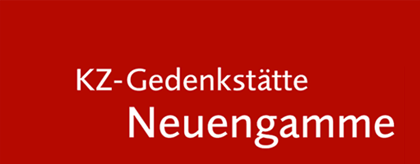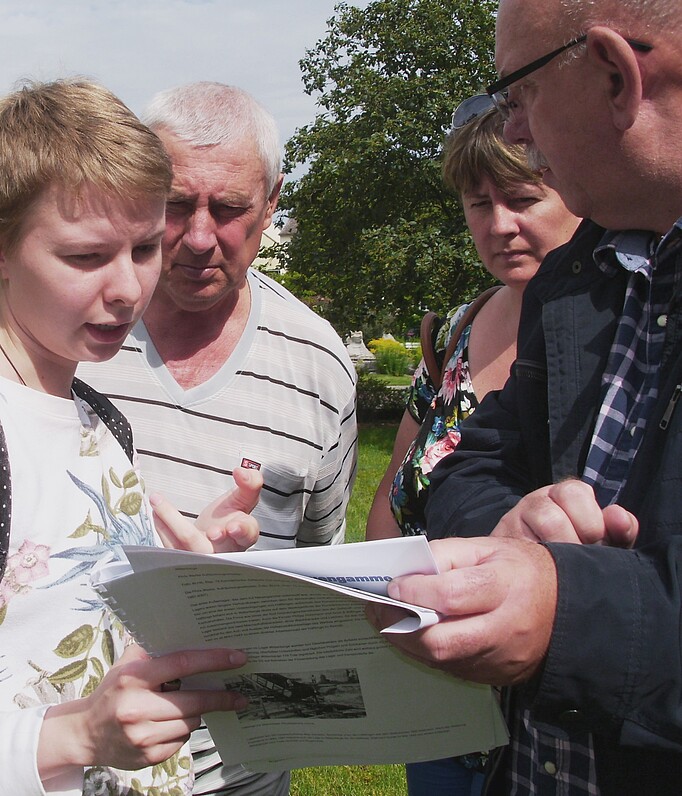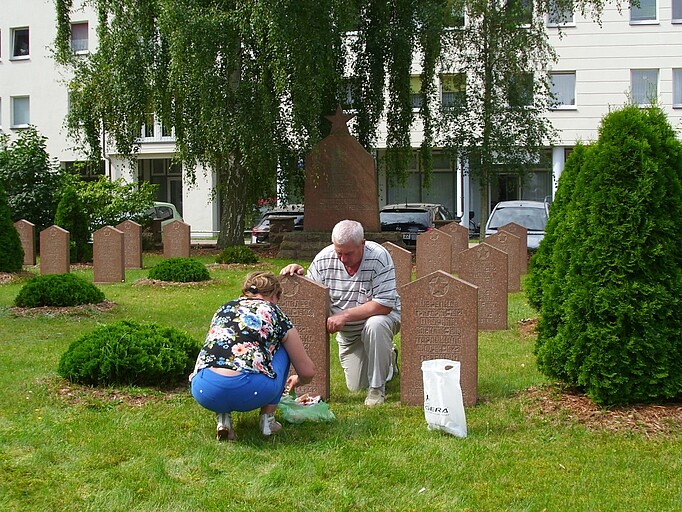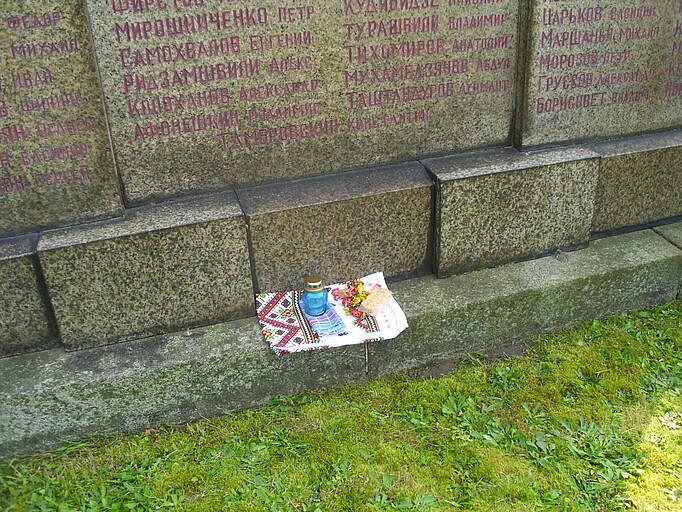08/25/2017 Report
In Search for His Uncle’s Graves
What motivates a man of over 60, from Eastern Ukraine, to travel to Northern Germany for his first trip abroad?
Mykola Titov was in search of the fate of Ivan and Nikolai Titov. He had made a promise to his mother, who hoped for the return of her two brothers to Ukraine until her death, to discover that fate. Ten years after the death of his mother, the son began to try to find concrete traces of his uncles. He lives in a small village in Eastern Ukraine and in the beginning it was complicated: he had written letters to various organisations which were related to the topic but he had not received any answers. After being gifted a computer by his son and gaining access to the internet, things began to go much better and faster. A few years ago, he was able to obtain concrete information regarding their graves from the International Tracing Service (ITS) in Bad Arolsen. Now he has visited the places in Germany, which are connected with the fate of his uncles.
Ivan Titov was deported to the Buchenwald concentration camp in 1942 and after a short period in Neuengamme concentration camp, at the beginning of January 1943, was taken to the Wittenberge satellite camp. On January 21, 1943, he died there at the age of twenty. In Wittenberge, the prisoners were employed by Phrix-Werke-AG in the processing of pulp. A tombstone for Ivan Titov is located in the Russian cemetery of honour next to the town hall in Wittenberge.
On the same day as his brother, probably in 1941 or 1942, Ivan's brother Nikolai was sent to Germany for forced labor. His path probably led via Salzgitter to the Wittstock region. In Wittstock he died in 1945 and was buried in the Russian cemetery of honour next to the railway station. He was 17 years old when he died.
To commemorate and explore the fate of the two close relatives was the legacy left by Mykola Titov’s mother: "I feel relieved now that I could visit their gravesites, and I am grateful to all the people who have made it possible for me to visit these sites." It was important to Mykola Titov to express that. Now he knows that the lifelong missing brothers of his mother have a worthy burial place. He had brought soil and objects from his home-village to lay them down at the graves and he lit a candle for the souls of the dead.
Mr. Titov and his daughter Iryna were invited by the Freundeskreis of the Neuengamme Concentration Camp Memorial, with support of the Neuengamme association and the Church Memorial Work of the Neuengamme Concentration Camp Memorial. Thanks to the support of the Memorial, the municipalities of Wittenberge and Wittstock, the cemetery administration in Wittenberge, and the Death March Memorial in Belower Wald, Mr. Titov and his daughter were able to learn a little more about their relatives and their fates during the visit. Their search for more information is on going.
It was a very moving encounter, which once again made it clear that the traumatic experiences of the war will remain present in future generations.
Articles about the visit in the Märkische Allgemeine



